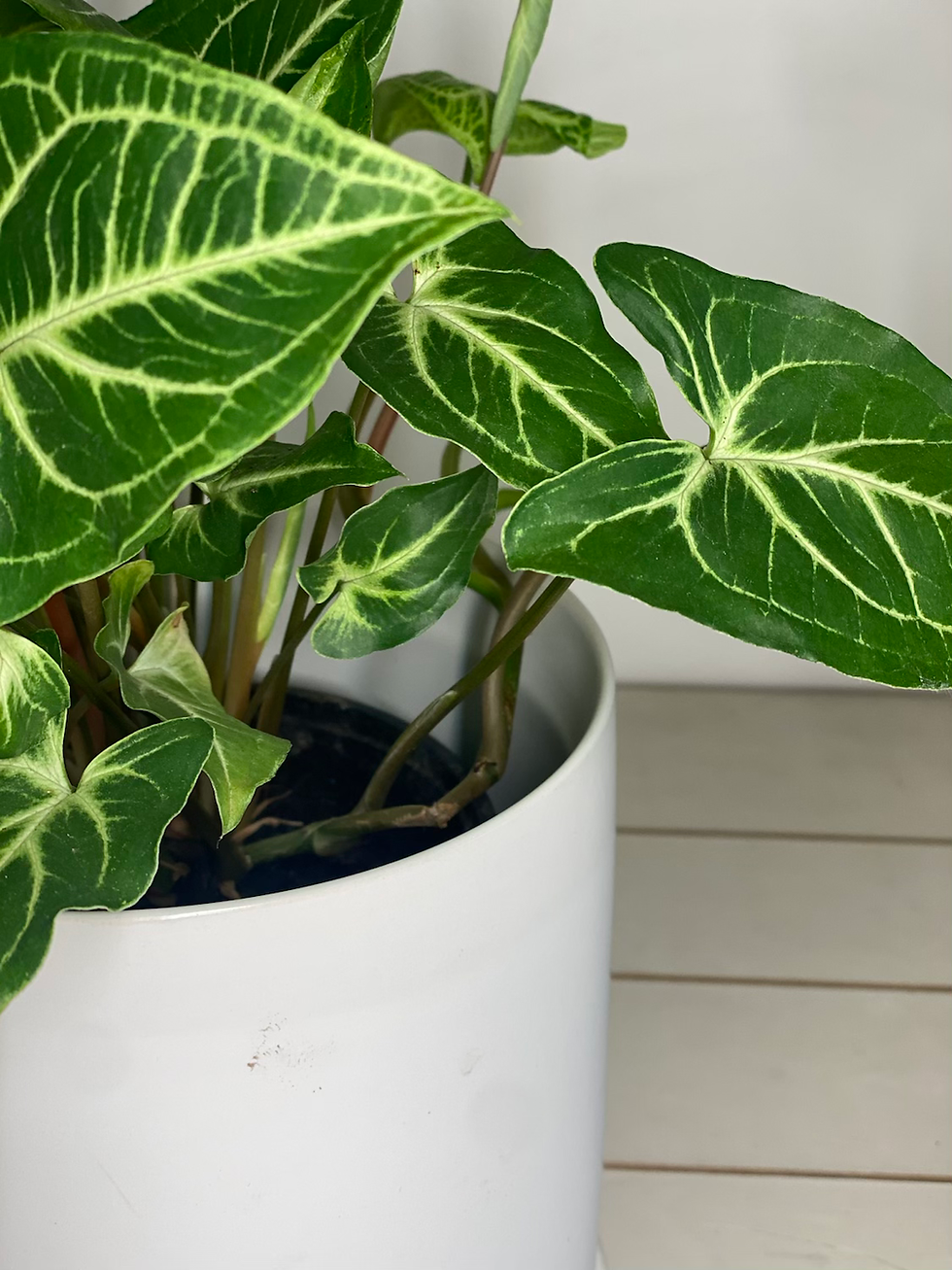
SYNGONIUM
Syngonium or arrowhead plant as they are commonly known, are common houseplants in New Zealand that offer a wide variety of colours. They are hardy plants that for the first part of their life grow upright, before they begin to trail.
Light
Syngonium thrive best in bright indirect light but also tolerate medium light.
Water
Syngoniums like to stay on the moist side but not soggy. It may require some time to learn the cues as to when your plant requires watering.
Generally, if the top 2 centimetres of soil are dry, it is time to water your Syngonium.
Syngonium do not want to be dried out completely and they will let you know when watering has been left too late by floppy over and droopy leaves. They will quickly recover once watered.
Soil
The soil should be loose and not densely packed to allow for free water drainage and oxygen supply to the roots. We recommend a cacti and succulent mix for your Syngonium.
Adding coco coir which has
water retentive qualities to the cacti and succulent mix will ensure consistent moisture which Syngonium prefer.
Temperature
Syngonium best thrive in temperatures above 18°C but can tolerate low temperatures for short periods of time during to the colder months of the year.
In winter keep them away from log burners or away from the path of the airflow from your heat pump.
Humidity
Any average household humidity level is fine for Syngonium and generally no additional humidity is required.

Fertiliser
Along with the rest of your houseplants, your Syngonium
should be regularly fed with a
well balanced fertiliser.
During spring and summer this should be on a fortnightly basis while in winter when the plants are going into dormancy or are dormant once a month at half strength.
Propagation
Syngoniums are part of the aroid family and can be propagated in two ways.
The first and easiest way is through plant division and similarly to Calatheas, they grow in sections that can be cut off the mother plant during repotting.
The second way to propagate Syngonium is through leaf stem cuttings but a node needs to be present which is more difficult with younger plants.
The leaf stem cutting can then easily be propagated with most propagation techniques including water, straight into soil or in fern fibre.






























